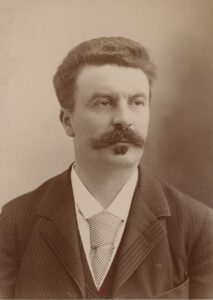Spanish short stories – Learning Spanish through English Akbar and Birbal – El bigote del Rey Once upon a time, King Akbar announced, “My dear courtiers, I have a problem for which I need a solution immediately.” Everyone in the court looked at King Akbar. Translate
Érase una vez el rey Akbar, quien anunció: “Mis queridos cortesanos, tengo un problema para el que necesito una solución de inmediato.”. Todos en la Corte miraron al rey Akbar.
King Akbar said, “Someone dared to pull my moustache yesterday. What is the punishment that I should give him?”
Translate El rey Akbar dijo: “Alguien se atrevió a tirar de mi bigote ayer. ¿Cuál es el castigo que debería darle?”.
Everyone in the court became very angry and started to shout. One minister said, “He should be flogged with a whip!”
Translate Todos en la Corte se enojaron mucho y empezaron a gritar. Un ministro dijo: “¡Deberían azotarlo con un látigo!”.
The chief of the army said, “He should be hanged.” Another minister said, “He should be jailed for life! What a fool!”
Translate El jefe del ejército dijo: “Deberían colgarlo”. Otro ministro dijo: “¡Debería ser encarcelado de por vida! ¡Qué tonto!”.
Similarly, all the ministers kept suggesting many punishments. Only Birbal was silent and smiling.
Translate Asimismo, todos los ministros continuaron sugiriendo muchos castigos. Solo Birbal estaba en silencio, sonriendo.
The King asked Birbal, “Why are you so quiet Birbal? And why are you smiling? What punishment should I award this person?” Birbal said, “My dear King, I think you should give him a sweet and a big hug.”
Translate El Rey le preguntó a Birbal: “¿Por qué estás tan callado, Birbal? ¿Y por qué estás sonriendo? ¿Qué castigo debería darle a esta persona?”. Birbal dijo: “Mi querido Rey, creo que debería darle un dulce y fuerte abrazo.”.
Akbar angrily said, “What are you saying Birbal? Have you gone mad? Are you saying that such a person should be rewarded?”
Translate Akbar dijo enojado: “¿Qué estás diciendo, Birbal? ¿Te has vuelto loco? ¿Estás diciendo que esa persona debería ser recompensada?”.
Birbal replied politely, “I am not mad, my dear King! I can give you my explanation!”
Translate Birbal respondió cortésmente: “¡No estoy loco, mi querido Rey! ¡Puedo darte una explicación!”.
Akbar said, “Then tell me why I should reward the person who pulls my moustache?”
Translate Akbar dijo: “¿Entonces, dime, por qué debería recompensar a la persona que tiró de mi bigote?”.
Birbal replied politely, “The only person who can dare to do this is your grandson. And I know that you love giving sweets to your grandson.”
Translate Birbal respondió cortésmente: “La única persona que puede atreverse a hacer eso es su nieto. Y sé que le encanta darle cariños a su nieto.”.
The Rey laughed very loudly and agreed. He was very happy with Birbal’s answer and gave his 100 gold coins as a reward.
Translate El Rey rio a carcajadas y le dio la razón. Estaba muy contento con la respuesta de Birbal y le dio 100 monedas de oro como recompensa.
Hope you had fun learning the Spanish language through short stories 🙂 If so leave a comment!!!
For more languages: Learn German through Short stories: https://childhood-stories.com/German
Learn Spanish through Short stories: https://childhood-stories.com/Spanish
Learn Italian through Short stories: https://childhood-stories.com/Italian
Learn Dutch through Short stories: https://childhood-stories.com/Dutch
Learn French through Short stories: https://childhood-stories.com/French
Learn Portuguese through Short stories: https://childhood-stories.com/Portuguese
Learn English through Short stories: https://childhood-stories.com/English
About: Studying through Dual Language immersion is among the best techniques for learning a new language. The objective of this website is to teach yourself how to read and speak Spanish confidently using English as a base 🙂 These Spanish short stories are super cool to read for beginners and also for entertaining children. Akbar and Birbal are among the most famous Indian stories for children that can be studied on a daily basis.



